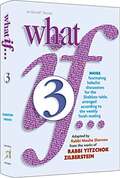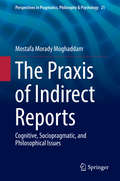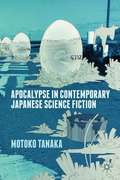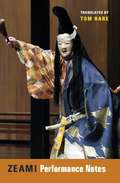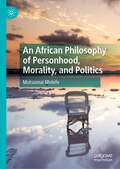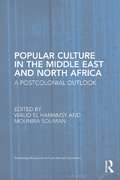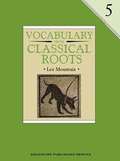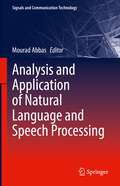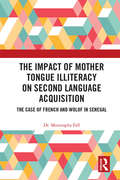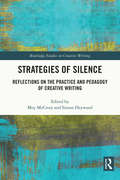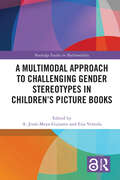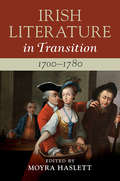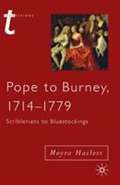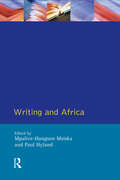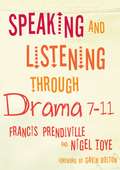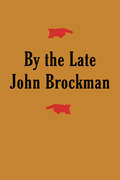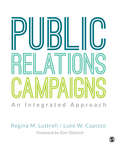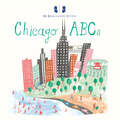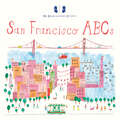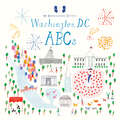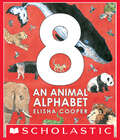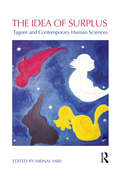- Table View
- List View
What if…?: More Fascinating Halachic Discussions for the Shabbos Table, Arranged According to the Weekly Torah Reading (What If…? #3)
by Moshe SherrowWhat if... ...a man needs to take a sleep test, but it will mean missing zeman Kriyas Shema? ...a candy thrown during an aufruf misses the chasan and breaks the gabbai's glasses? ...someone takes out his neighbor's garbage, but there was jewelry in the trash bag? <P><p>Tens of thousands of readers have made the What If? series a staple at their Shabbos table. Based on the popular Hebrew-language series Chashukei Chemed, written by noted rav and posek, Rav Yitzchok Zilberstein shlita, and translated and arranged in the order of the weekly parashah by Rabbi Moshe Sherrow, What If? includes hundreds of real-life halachic questions, each accompanied by a brief, practical scenario to illustrate the case, and an analysis that is understandable and easy to follow. <p><p>What If? 3 continues the stimulating Torah conversation, with more fascinating halachic questions and scenarios. What If... ...your Shabbos table conversation flowed as freely as fine wine? ...your children sat at Shabbos dinner, engaged and enthusiastic by the Torah discussion? ...your guests enjoyed the conversation as much—and even more—as they enjoyed your chulent? What If? 3—The Torah conversation continues!
The Praxis of Indirect Reports: Cognitive, Sociopragmatic, and Philosophical Issues (Perspectives in Pragmatics, Philosophy & Psychology #21)
by Mostafa Morady MoghaddamThis book discusses the concept of indirect reporting in relation to sociopragmatic, philosophical, and cognitive factors. In addition, it deals with several state-of-the-art topics with regard to indirect reports, such as trust, politeness, refinery and photosynthetic processes and cognitive features. The book presents socio-cognitive accounts of indirect reports that take into consideration Grice’s Cooperation Principle and Sperber and Wilson’s Relevance Theory. It discusses direct and indirect reports and their similarities and differences, with a focus on the neglected role of the hearer in indirect reports. It presents an extensive comparison of translation and indirect reports (with a detailed discussion on reporting/translating slurring), and examines politeness issues and the role of trust. It deals with the main principles governing the use and interpretation of indirect reports (among them, the Principle of Commitment and the Principle of Immunity). Finally, the book discusses the idea of ‘common core’ and cross-cultural studies in reported speech and illustrates by means of an analysis of Persian reported speech, how subjectivity and uncertainty are presented among Persian speakers.
Apocalypse in Contemporary Japanese Science Fiction
by Motoko TanakaStarting with the history of apocalyptic tradition in the West and focusing on modern Japanese apocalyptic science fiction in manga, anime, and novels, Motoko Tanaka shows how science fiction reflected and coped with the devastation in Japanese national identity after 1945.
Zeami: Performance Notes (Translations from the Asian Classics)
by Motoyiko ZeamiZeami (1363-1443), Japan's most celebrated actor and playwright, composed more than thirty of the finest plays of no drama. He also wrote a variety of texts on theater and performance that have, until now, been only partially available in English. Zeami: Performance Notes presents the full range of Zeami's critical thought on this subject, which focused on the aesthetic values of no and its antecedents, the techniques of playwriting, the place of allusion, the training of actors, the importance of patronage, and the relationship between performance and broader intellectual and critical concerns. Spanning over four decades, the texts reflect the essence of Zeami's instruction under his famous father, the actor Kannami, and the value of his long and challenging career in medieval Japanese theater. Tom Hare, who has conducted extensive studies of no academically and on stage, begins with a comprehensive introduction that discusses Zeami's critical importance in Japanese culture. He then incorporates essays on the performance of no in medieval Japan and the remarkable story of the transmission and reproduction of Zeami's manuscripts over the past six centuries. His eloquent translation is fully annotated and includes Zeami's diverse and exquisite anthology of dramatic songs, Five Sorts of Singing, presented both in English and in the original Japanese.
An African Philosophy of Personhood, Morality, and Politics
by Motsamai MolefeThis book explores the salient ethical idea of personhood in African philosophy. It is a philosophical exposition that pursues the ethical and political consequences of the normative idea of personhood as a robust or even foundational ethical category. Personhood refers to the moral achievements of the moral agent usually captured in terms of a virtuous character, which have consequences for both morality and politics. The aim is not to argue for the plausibility of the ethical and political consequences of the idea of personhood. Rather, the book showcases some of the moral-political content and consequences of the account it presents.
Popular Culture in the Middle East and North Africa: A Postcolonial Outlook (Routledge Research in Postcolonial Literatures #46)
by Walid El Hamamsy Mounira SolimanThis book explores the body and the production process of popular culture in, and on, the Middle East and North Africa, Turkey, and Iran in the first decade of the 21st century, and up to the current historical moment. Essays consider gender, racial, political, and cultural issues in film, cartoons, music, dance, photo-tattoos, graphic novels, fiction, and advertisements. Contributors to the volume span an array of specializations ranging across literary, postcolonial, gender, media, and Middle Eastern studies and contextualize their views within a larger historical and political moment, analyzing the emergence of a popular expression in the Middle East and North Africa region in recent years, and drawing conclusions pertaining to the direction of popular culture within a geopolitical context. The importance of this book lies in presenting a fresh perspective on popular culture, combining media that are not often combined and offering a topical examination of recent popular production, aiming to counter stereotypical representations of Islamophobia and otherness by bringing together the perspectives of scholars from different cultural backgrounds and disciplines. The collection shows that popular culture can effect changes and alter perceptions and stereotypes, constituting an area where people of different ethnicities, genders, and orientations can find common grounds for expression and connection.
Vocabulary from Classical Roots 5
by Mountain LeeIdeal for students mastering a growing content-area vocabulary in social studies, science, and mathematics-predominantly multisyllabic Greek and Latin-based words-Vocabulary from Classical Roots helps students unlock the meanings of literally thousands of words, and gives them the skills to do so throughout their lives.
Analysis and Application of Natural Language and Speech Processing (Signals and Communication Technology)
by Mourad AbbasThis book presents recent advances in NLP and speech technology, a topic attracting increasing interest in a variety of fields through its myriad applications, such as the demand for speech guided touchless technology during the Covid-19 pandemic. The authors present results of recent experimental research that provides contributions and solutions to different issues related to speech technology and speech in industry. Technologies include natural language processing, automatic speech recognition (for under-resourced dialects) and speech synthesis that are useful for applications such as intelligent virtual assistants, among others. Applications cover areas such as sentiment analysis and opinion mining, Arabic named entity recognition, and language modelling. This book is relevant for anyone interested in the latest in language and speech technology.
The Impact of Mother Tongue Illiteracy on Second Language Acquisition: The Case of French and Wolof in Senegal (Routledge Research in Language Education)
by Moustapha FallThis text illustrates the crucial role of the mother tongue literacy in second language acquisition by presenting findings from a comparative study conducted in primary schools in Senegal. In addition, the volume provides an in-depth look at the linguistic history of Senegal before, during, and after French colonialism. The Impact of Mother Tongue Illiteracy on Second Language Acquisition discusses the socio-linguistic landscape and ethnolinguistic composition of Senegal and its effect on the second language acquisition. An in-depth analysis of children’s phonological awareness, decoding, and reading comprehension in French reveals significant disparities in the literacy skills of Wolof children who have been exposed to Arabic and Qur’anic texts prior to schooling, and those who have not. In doing so, the text explores the impacts of post-colonial language policies in Africa, highlights the pedagogical consequences of mother tongue illiteracy, and questions the use of French as the only language of instruction in Senegalese schools. This detailed research text will of great interest and use to graduate and postgraduate students, researchers, academics, professionals and policy makers in the field of Second Language Acquisition, Multicultural Education, Applied Linguistics, French language education and, Language Policy and Planning.
Strategies of Silence: Reflections on the Practice and Pedagogy of Creative Writing (Routledge Studies in Creative Writing)
by Simon Heywood Moy McCroryThis unique book takes silence as its central concept and questions the range of meanings and values which inform the idea as it impinges on the creative process and its content and contexts. The thematic core of silence allows a consideration of silencing and silence as opposite ends of a spectrum: one shutting down, the other enabling and opening up. As a multidisciplinary collection of essays derived from the teaching and implementation of Creative Writing at university level, the contributors consider silence as strategic, both through the need for silence and as something which compels resistance. They explore how writing has employed images and tropes of silence in the past, and used silence and gaps technically. In considering marginalised and forgotten voices, this book shows how writers bring their diverse range of backgrounds and experience to work with and against silence in Creative Writing Studies. The first theoretical work on silence in Creative Writing, this field-shifting book is an essential read for both practitioners and students of Creative Writing at the higher education level.
A Multimodal Approach to Challenging Gender Stereotypes in Children’s Picture Books (Routledge Studies in Multimodality)
by Moya-Guijarro, A. JesúsThis collection offers a thorough treatment of the ways in which the verbal and visual semiotic modes interrelate toward promoting gender equality and social inclusion in children’s picture books. Drawing on cutting-edge theoretical work in multimodality, including multimodal cognitive linguistics, multimodal discourse analysis, and visual social semiotics, the book expands on descriptive-oriented studies to offer a more linguistically driven perspective on children’s picture books. The volume explores the choice afforded to and the lexico-semantic and discursive strategies employed by writers and illustrators in conveying representational, interpersonal, and textual meanings in the verbal and non-verbal components in these narratives in order to challenge gender stereotypes and promote the social inclusion of same-sex parent families. This book will be of particular interest to students and scholars in multimodality, discourse analysis, social semiotics, and children’s literature. Chapter 1 of this book is freely available as a downloadable Open Access PDF under a Creative Commons Attribution-Non Commercial-No Derivatives 4.0 license available at http://www.taylorfrancis.com.
A Multimodal Approach to Challenging Gender Stereotypes in Children’s Picture Books (Routledge Studies in Multimodality)
by Moya-Guijarro, A. JesúsThis collection offers a thorough treatment of the ways in which the verbal and visual semiotic modes interrelate toward promoting gender equality and social inclusion in children’s picture books.Drawing on cutting-edge theoretical work in multimodality, including multimodal cognitive linguistics, multimodal discourse analysis, and visual social semiotics, the book expands on descriptive-oriented studies to offer a more linguistically driven perspective on children’s picture books. The volume explores the choice afforded to and the lexico-semantic and discursive strategies employed by writers and illustrators in conveying representational, interpersonal, and textual meanings in the verbal and non-verbal components in these narratives in order to challenge gender stereotypes and promote the social inclusion of same-sex parent families.This book will be of particular interest to students and scholars in multimodality, discourse analysis, social semiotics, and children’s literature.Chapters 1 & 8 of this book are freely available as downloadable Open Access PDFs under a Creative Commons Attribution-Non Commercial-No Derivatives 4.0 license available at http://www.taylorfrancis.com.
Irish Literature in Transition, 1700–1780: Volume 1 (Irish Literature in Transition)
by Moyra HaslettThis volume examines eighteenth-century Irish literature, highlighting the diversity of texts, authors and approaches that characterises contemporary studies of the period. Chapters consider the contexts of history, politics, language, philosophy, gender, sexuality, and the environment while situating Irish literature in relation to Ireland, Britain, Europe and beyond. Well-known authors (Jonathan Swift, Edmund Burke and Oliver Goldsmith) are read alongside less familiar writers (including Mary Barber, William Chaigneau, Frances Sheridan, and Samuel Whyte) and popular and ephemeral literatures take their place with formerly canonical texts. It demonstrates the exciting vitality and richness of eighteenth-century Irish literature - written and performed - as well as its complex intersections with different communities and traditions. This book will be a key resource to scholars and students of Irish eighteenth-century studies as well as readers generally interested in questions of Anglophone and Irish-language culture, representations of gender and sexuality, and national and trans-national identities.
Pope to Burney, 1714–1779
by Moyra HaslettThis essential guide defines literature of the eighteenth century as a literature written and received as public conversation. Moyra Haslett discusses and challenges conventional ways of reading the period, particularly in relation to notions of the public sphere. In her wide-ranging study, Haslett reads key texts - including The Dunciad, Gulliver's Travels and Pamela - in their literary and cultural contexts, and examines such genres as the periodical, the familiar letter, the verse epistle and the novel as textual equivalents of coterie culture.
Writing and Africa (Crosscurrents)
by Paul Hyland Mpalive-Hangson MsiskaThis volume reflects one of the new areas of English Studies as it broadens to take in non-western literatures, and places more emphasis on the contexts and broader notions of `writing'. In discussing writing from and about Africa, this collection touches on studies in black writing, colonialism and imperialism and cultural development in the third world. It begins by providing a historical introduction to the main regional traditions, and then builds on this to discuss major issues, such as oral tradition, the significance of `literature' as a western import, representations of Africa in western writing, African writing against colonialism and its themes and politics in a post-colonial world, popular writing and the representation of women.
Speaking and Listening through Drama 7-11
by Nigel Toye Mr Francis Prendiville'This book is special. It proposes a style of drama that liberates teachers and children from traditional dialogues...The dramas, each linked to a literacy text or wider theme, are amazing...I would recommend buying this. It challenges, but rewards with a new level of classroom dialogue' - Literacy Time 'This new book for teachers is timely and full of good ideas. It demonstrates the value of drama as a means of achieving education that stimulates creative and critical thinking while also engaging the emotions' - Teaching Thinking & Creativity Showing teachers how to use drama to promote speaking and listening for pupils, including those who find learning difficult, this book describes, analyses and teaches how to use role play effectively and looks at how to generate a productive dialogue between teachers and pupils that is both powerful and enabling. The authors present innovative methods for teaching across the curriculum which are genuinely inclusive and can help to motivate reluctant learners. The 'how to' section of the book describes a range of strategies and approaches: o how to begin with 'teacher in role' o how to begin planning drama o how to generate quality speaking and listening o how to use drama for inclusion and citizenship o how to generate empathy in drama o how to link history and drama o how to begin using assessment of speaking and listening (and other English skills) through drama The second section includes full lesson plans that have been tried and tested with pupils, complete with detailed guidance on how to structure the work and how to play the teacher roles. Each is linked to literacy, the wider curriculum, PSHE and citizenship. The book is a valuable resource for primary teachers in training and in practice.
By the Late John Brockman
by Mr John BrockmanA radical, experimental work that challenges the boundaries of poetry, philosophy, and science. First published in 1969, this new and expanded edition of John Brockman's first book, By The Late John Brockman, also includes the full text of 37 (1971), and Afterwords (1973).This edition features a new foreword by Hans Ulrich Obrist, co-director of the Serpentine Gallery and author of Ways of Curating.
Public Relations Campaigns: An Integrated Approach
by Ms Regina M. Luttrell Mr Luke W. CapizzoPublic Relations Campaigns: An Integrated Approach introduces you to the process of creating public relations campaigns using a hands-on approach that emphasizes the tools you will need when working in the industry. Authors Regina M. Luttrell and Luke W. Capizzo present real examples and current case studies to help you develop practical skills for creating more effective PR campaigns. You are given multiple opportunities to practice and build your skills throughout the book by learning how to incorporate the PESO model—Paid media, Earned media, Social media, and Owned media. The PESO model helps students understand the importance of creating integrated campaigns that coordinate PR efforts with both advertising and marketing. Key Features The book offers a timely focus on the PESO model and its use in integrated campaigns, providing students with an understanding of today’s best practices in PR. Numerous case studies and exercises throughout the book aid in a deeper understanding of how research, perspective, and insights can be leveraged in public relations campaigns. Real-world information including sample PR plans with budgets prepare students for success in their future careers.
Public Relations Campaigns: An Integrated Approach
by Ms Regina M. Luttrell Mr Luke W. CapizzoPublic Relations Campaigns: An Integrated Approach introduces you to the process of creating public relations campaigns using a hands-on approach that emphasizes the tools you will need when working in the industry. Authors Regina M. Luttrell and Luke W. Capizzo present real examples and current case studies to help you develop practical skills for creating more effective PR campaigns. You are given multiple opportunities to practice and build your skills throughout the book by learning how to incorporate the PESO model—Paid media, Earned media, Social media, and Owned media. The PESO model helps students understand the importance of creating integrated campaigns that coordinate PR efforts with both advertising and marketing. Key Features The book offers a timely focus on the PESO model and its use in integrated campaigns, providing students with an understanding of today’s best practices in PR. Numerous case studies and exercises throughout the book aid in a deeper understanding of how research, perspective, and insights can be leveraged in public relations campaigns. Real-world information including sample PR plans with budgets prepare students for success in their future careers.
Mr. Boddington's Studio: Chicago ABCs
by Mr. Boddington's StudioAbstract art! Big buildings! The Chicago Cubs! Oh my! Based on the chic designs of Mr. Boddington's Studio, this board book brings to life the ABCs of everyone's favorite windy city, Chicago.This board book teaches the letters of the alphabet with illustrations of people, places, and things unique to one of the greatest cities in the world. It is the perfect gift for anyone who loves the Windy City!
Mr. Boddington's Studio: NYC ABCs
by Mr. Boddington's StudioBased on the beautiful designs of Mr. Boddington's Studio, this board book is the perfect introduction to the ABCs of NYC.This board book teaches the letters of the alphabet with illustrations of people, places, and things unique to the greatest city in the world. It is the perfect gift for anyone who loves New York!
Mr. Boddington's Studio: San Francisco ABCs
by Mr. Boddington's StudioAlcatraz! The Bay Bridge! The Castro! Oh my! Based on the chic designs of Mr. Boddington's Studio, this board book brings to life the ABCs of San Francisco.This board book teaches the letters of the alphabet with illustrations of people, places, and things unique to the beautiful city by the bay. It is the perfect gift for anyone who loves San Francisco!
Mr. Boddington's Studio: Washington, DC ABCs
by Mr. Boddington's StudioAir and Space Museum! Ben's Chili Bowl! Capitol Hill! Based on the chic designs of Mr. Boddington's Studio, this board book brings to the life the ABCs of the capital city, Washington, D.C.This board book teaches the letters of the alphabet with illustrations of people, places, and things unique to nation's capital. It is the perfect gift for policy wonks, politics nerds, and the little ones who love them.
8: An Animal Alphabet
by Mr. Elisha CooperExplore the animal world, from aardvark to zebu!Discover hundreds of animals, great and small. Lion and lizard, whale and wombat. Learn one wild fact about each animal. (Did you know that gorillas yawn when they are nervous?) Look carefully, because for each letter of the alphabet, one animal is pictured eight times. Why 8? Come inside and find out.
The Idea of Surplus: Tagore and Contemporary Human Sciences
by Mrinal MiriThis book provides an analytical understanding of some of Tagore’s most contested and celebrated works and ideas. It reflects on his critique of nationalism, aesthetic worldview, and the idea of ‘surplus in man’ underlying his life and works. It discusses the creative notion of surplus that stands not for ‘profit’ or ‘value’, but for celebrating human beings’ continuous quest for reaching out beyond one’s limits. It highlights, among other themes, how the idea of being ‘Indian’ involves stages of evolution through a complex matrix of ideals, values and actions—cultural, historical, literary and ideological. Examining the notion of the ‘universal’, contemporary scholars come together in this volume to show how ‘surplus in man’ is generated over the life of concrete particulars through creativity. The work brings forth a social scientific account of Tagore’s thoughts and critically reconstructs many of his epochal ideas. Lucid in analysis and bolstered with historical reflection, this book will be a major intervention in understanding Tagore’s works and its relevance for the contemporary human and social sciences. It will interest scholars and researchers of philosophy, literature and cultural studies.
